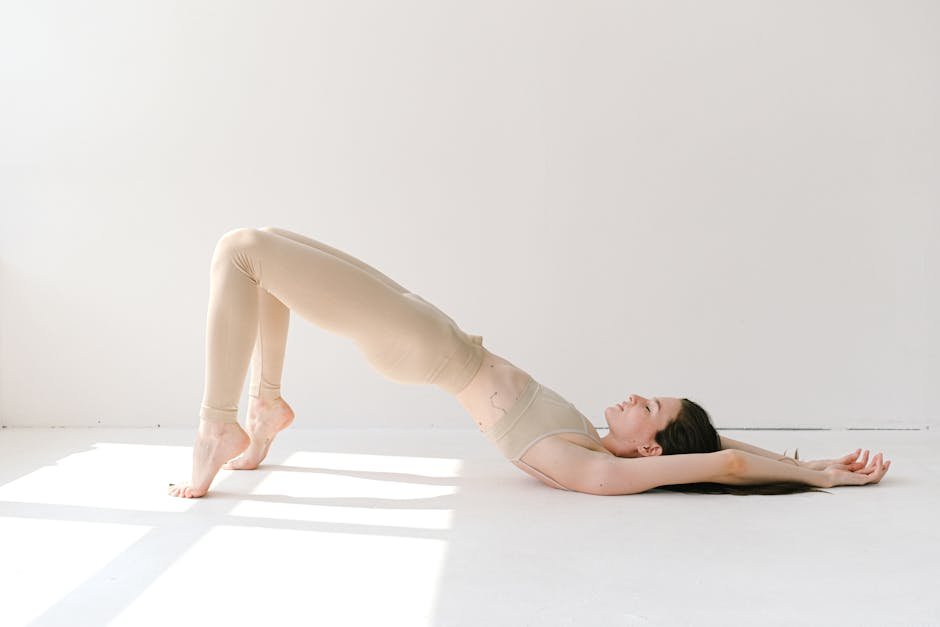The Science Behind Yoga Mindfulness: Benefits for Body and Brain
Introduction to Yoga Mindfulness
Yoga mindfulness is more than just a trend. It's a practice rooted in ancient tradition, blending physical poses with mental focus to enhance well-being. Think of it as a workout for your mind, body, and spirit. Here's the deal - while you're moving through various yoga poses, you're also trained to keep your attention on the present moment. This dual action works wonders. It's not just about flexibility or strength; it's about calming the mind and reducing stress. With yoga mindfulness, it's like hitting the pause button on life's chaos, allowing you to connect deeply with the here and now. The beauty of it? Anyone can do it. Whether you're a seasoned yogi or someone who can barely touch their toes, the practice is adjustable to fit your level. So, if you're looking to deepen your yoga journey or just find a moment of peace in a hectic day, diving into yoga mindfulness might just be your answer.
The Connection Between Yoga and Mental Health
Yoga isn't just about getting more flexible or having a moment of calm in a busy schedule. It's a powerful tool that affects your mental health in a big way. When you do yoga, your brain gets a workout too. It's all about the connection between moving your body and paying attention to your breath. This combo helps reduce stress, anxiety, and depression. Think of it as hitting the reset button for your mind. As you move through different poses, your body releases chemicals called endorphins. These are the feel-good hormones that make you feel happy and relaxed. Plus, focusing on your breath can quiet down the chatter in your mind, giving you a break from the constant stream of thoughts. Regular yoga practice can lead to better sleep, more focus, and a generally brighter outlook on life. So, when we talk about yoga and mental health, we're looking at a real deal way to improve how you feel on the inside by doing something good for your body.
Biological Impacts of Yoga Mindfulness on the Brain
Yoga mindfulness does more than just calm you down. It changes your brain. Science shows it boosts the parts of your brain involved in decision-making and attention. At the same time, it dials down the areas linked to stress and fear. Regular practice can increase the volume of the hippocampus, important for memory and learning. It can also beef up the prefrontal cortex, which handles planning and self-control. This means over time, yoga and mindfulness can not only make you feel less stressed but can actually make your brain sharper and more efficient. Plus, it decreases the size of the amygdala, the brain's fear center. This leads to less stress and better emotional stability. Simple as that.
Physical Health Benefits of Practicing Yoga Mindfulness
Yoga mindfulness goes beyond just flexibility. It boosts your heart health, can ease pain, and improves strength. Regular yoga practice lowers blood pressure and reduces the risk of heart disease. It's also a game-changer for those dealing with chronic pain, making discomfort more manageable. Strength isn't only about muscle power; it's about balance and stability too. Through various poses, yoga builds muscle evenly and enhances your core strength, vital for overall physical health. Plus, it supports healthier breathing patterns, which is key for both stress relief and physical endurance. In short, yoga mindfulness doesn't just work your body; it champions your heart, soothes pain, and fortifies your strength.
Enhancing Emotional Well-being Through Yoga
Yoga does more than just stretch your body; it touches your mind. When you practice yoga, you're taking a step towards improving how you feel on the inside. It's like hitting a refresh button for your emotions. Yoga helps balance stress hormones, reducing feelings of anxiety and depression. Imagine yoga as a tool that helps you clear away negative thoughts, giving you a sense of calm. This calmness is not just in the moment. Over time, yoga can reshape how you handle stress, making you more resilient. You'll find yourself bouncing back quicker from tough days. Importantly, yoga encourages mindfulness - a kind of mental training that teaches you to be present and fully engage with the now. It's about noticing your thoughts, but not getting lost in them. This practice can significantly lower stress levels, enhancing overall emotional well-being. So, embracing yoga could be a game-changer in how you navigate your emotional world.
Yoga Mindfulness Techniques for Stress Reduction
Yoga mindfulness is more than just stretching; it's a way to clear your mind and lower stress. It combines physical poses with deep breathing and meditation. This approach helps you focus on the present, making worries feel less overwhelming. Start with simple techniques like focusing on your breath or doing yoga poses with full awareness of each movement. These methods can significantly reduce stress levels, improving both mental and physical health. By practicing regularly, even for just a few minutes a day, you'll start to notice a calmer mind and a more relaxed body. Remember, the key is consistency. Keep at it, and you'll feel the difference.
Cognitive Enhancements: Memory and Focus Improvements
Yoga goes beyond physical poses. It sharpens your brain, enhancing memory and focus. When you practice yoga, you're not just stretching; you're training your brain to concentrate better. Studies show people who do yoga regularly have improved memory and are better at staying focused. Why does this happen? While you're moving through yoga poses and paying attention to your breathing, your brain gets better at ignoring distractions. This leads to a stronger, more focused mind. Also, yoga reduces stress, which is a big win for your memory. High stress levels can mess with your memory, but yoga's breathing and meditation can help keep stress in check. So, practicing yoga means you're building a calmer mind that can remember more and concentrate better.
Incorporating Yoga Mindfulness into Your Daily Routine
Incorporating yoga mindfulness into your daily routine doesn't require a lot of time or a yoga studio. Start with just a few minutes each day, wherever you are. First, find a quiet spot. Could be early morning in your living room or a calm corner during your lunch break. Sit or stand comfortably, and focus on your breathing. Take deep, slow breaths. Inhale through your nose, letting your belly expand, then exhale slowly through your mouth. This calms the mind and prepares it for mindfulness. Next, set a simple intention for your day or moment. It could be as straightforward as being kind to yourself or focusing on a task at hand. As you move through your day, come back to this intention, letting it guide your actions and thoughts. Try to integrate mindful moments into regular activities. While eating, pay attention to the taste, texture, and smell of your food. When walking, notice each step, how your feet feel on the ground, the air on your skin. Yoga mindfulness doesn't have to be a separate part of your day. By making a conscious effort to be present in what you're doing, you’ll bring more focus, calm, and joy into your life. This practice strengthens over time, transforming not just moments, but your entire approach to life.
Case Studies: Real-Life Success Stories of Yoga Mindfulness
Real people, just like you and me, have seen their lives transform through yoga mindfulness. There's James, a high school teacher who struggled with anxiety. He started a simple 20-minute daily yoga routine. Within months, not only did his anxiety levels drop, but he also found he could focus better in class. Then there's Maria, who couldn't sleep well for years. She added mindfulness meditation to her evening ritual. Now, she says she sleeps like a baby and her energy levels during the day have skyrocketed. And we can't forget about Alex, who suffered from chronic back pain. After incorporating yoga stretches into his weekly schedule, he noticed a significant reduction in pain. These stories aren't just feel-good moments; they're proof that the benefits of yoga mindfulness are real and achievable.
Conclusion: Embracing Yoga Mindfulness for a Holistic Health Approach
Embracing yoga mindfulness isn't just about doing stretches or holding poses. It's a comprehensive approach to both mental and physical health. By integrating this practice into your daily life, you tap into a range of benefits that can transform your wellbeing. From reducing stress and calming your mind to enhancing flexibility and strength in your body, yoga mindfulness offers a holistic way to care for yourself. It teaches you to be present, to listen to your body, and to connect with your inner self, leading to improved overall health. Whether you're looking to boost your mood, increase your focus, or just feel better in your skin, incorporating yoga mindfulness into your routine is a step towards a healthier, more balanced life. Remember, it's not about perfection; it's about progress and making time to care for your body and mind.


